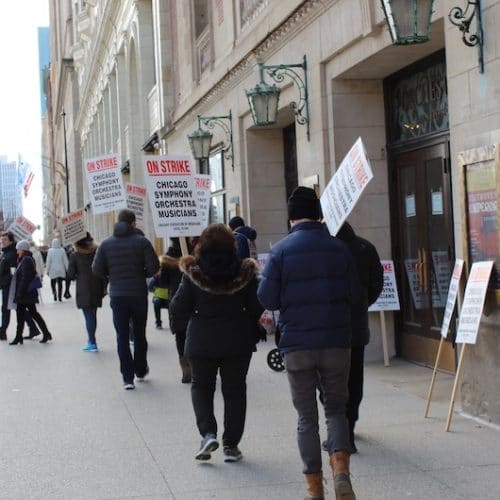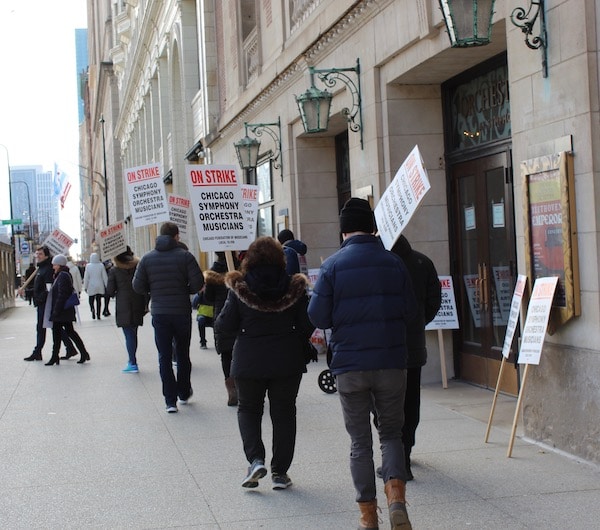Boston sends $15k to Chicago strikers
mainMembers of the Boston Symphony Orchestra have sent a check to their striking colleagues and this message to the CSOA Board:
The musicians of the Boston Symphony wish to express our unwavering support for our colleagues and fellow musicians of the Chicago Symphony, and urge you to end this strike immediately by withdrawing your demand to discontinue the musicians’ defined benefit pension plan. World-class institutions like the CSO are built and earn their reputations over years, decades, and centuries. But as we have seen countless times, irreparable damage can be done in a matter of days and weeks.
In addition to the vast superiority of defined benefit plans in economic efficiency and cost over the long term, the musicians of the BSO know very well how crucial they are in upholding the artistic quality of ensembles such as ours. Defined benefit plans allow a natural attrition and turn-over of players who are not forced to work past the point where they can contribute fully at the incredibly high level they are expected to perform. By attempting to withdraw this plan, you are threatening the artistic standard and the very heart of your organization.
We respectfully ask that you reconsider your position and offer the musicians of the CSO a contract that will allow them to remain one of the world’s great orchestras. The city of Chicago deserves no less.







Comments